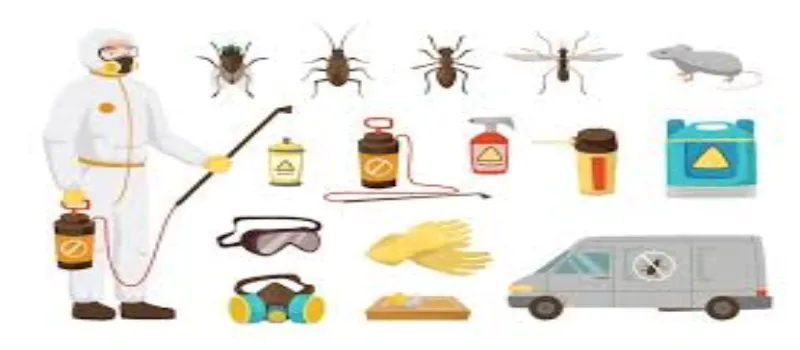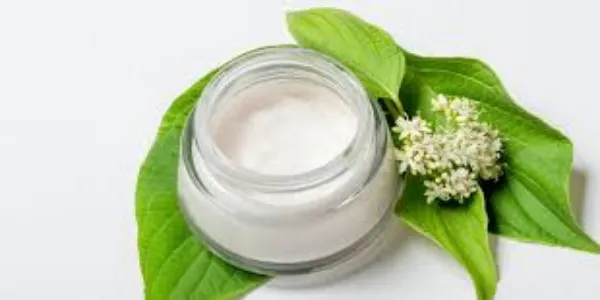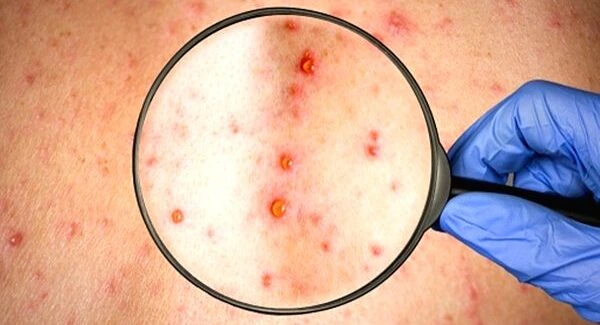More Information on Mosquito Repellents with questions

Posted Date: March 29th, 2023
In This Article
- Which repellents work best to stop mosquitos from biting?
- Which kind of clothing helps protect agains bites?
- How do you know abut a natural mosquito repellent will work?
- How are mosquito repellent tested?
- Why did we develop a natural mosquito repellent?
- How do you make a sustainable mosquito repellent?
- How does mosquito repellent work?
- Pros & Cons
See also
Which repellents work best to stop mosquitos from biting?
There are several types of mosquito repellents that are effective in stopping mosquitos from biting. Here are some of the most effective options:
DEET: DEET is a common active ingredient in many mosquito repellents and is highly effective in repelling mosquitos. It is safe for use on adults and children over two months of age, but should be used in accordance with the manufacturer’s instructions.
Picaridin: Picaridin is a synthetic compound that is similar to DEET in its effectiveness and safety profile. It is safe for use on adults and children over two months of age.
Oil of lemon eucalyptus (OLE): OLE is a natural mosquito repellent that has been shown to be effective in repelling mosquitos. It is safe for use on adults and children over three years of age.
IR3535: IR3535 is a synthetic compound that has been used in Europe as a mosquito repellent for over 20 years. It is safe for use on adults and children over two months of age.
Permethrin: Permethrin is a synthetic insecticide that is effective in killing mosquitos and can be used on clothing, camping gear and other outdoor equipment. It is not safe for use on skin.
It’s important to note that the effectiveness of mosquito repellents can vary depending on the species of mosquito and the environment in which they are used. Additionally, it’s a good idea to use mosquito repellents in conjunction with other mosquito control measures, such as removing standing water and using mosquito nets, to maximize their effectiveness.
Which kind of clothing helps protect agains bites?
The type of clothing you wear can play a significant role in protecting against mosquito bites. Here are some tips for choosing clothing that can help protect you from mosquito bites:
Wear long-sleeved shirts and pants: Mosquitoes are attracted to bare skin, so wearing long-sleeved shirts and pants can provide an extra layer of protection.
Choose loose-fitting clothing: Tight-fitting clothing can make it easier for mosquitoes to bite through the fabric, so choosing loose-fitting clothing can help prevent bites.
Wear light-colored clothing: Mosquitoes are attracted to dark colors, so wearing light-colored clothing can make you less attractive to them.
Use insect repellent: Using insect repellent on exposed skin and clothing can provide additional protection against mosquito bites.
Avoid wearing perfumes and scented products: Mosquitoes are attracted to strong scents, so avoiding perfumes and scented products can make you less attractive to them.
Wear clothing treated with permethrin: Permethrin is a synthetic insecticide that can be applied to clothing, shoes and gear to repel and kill mosquitoes on contact. Treated clothing can provide additional protection against mosquito bites.
By following these tips, you can help protect yourself from mosquito bites and the potential diseases they can transmit
How do you know abut a natural mosquito repellent will work?
There are several natural mosquito repellents available that have been shown to be effective at repelling mosquitoes. However, the effectiveness of natural mosquito repellents can vary depending on factors such as the type of mosquito species and the environment. Here are some things to look for when choosing a natural mosquito repellent:
Active ingredients: Look for natural mosquito repellents that contain active ingredients that have been scientifically shown to be effective at repelling mosquitoes. Examples include oil of lemon eucalyptus, catnip oil and citronella oil.
Concentration: The concentration of the active ingredient in the mosquito repellent can affect its effectiveness. Look for products with a concentration of at least 30% to ensure maximum effectiveness.
Duration of protection: Natural mosquito repellents can provide protection for varying amounts of time. Look for products that provide protection for several hours to ensure that you are protected for an extended period of time.
Reviews and ratings: Check online reviews and ratings to see what other users have experienced with the product. This can provide valuable insight into how effective the natural mosquito repellent is at repelling mosquitoes.
Personal experience: Ultimately, the best way to know if a natural mosquito repellent will work for you is to try it out for yourself. Be sure to follow the instructions on the label and apply the repellent as directed to ensure maximum effectiveness. If you find that the natural mosquito repellent is not effective, consider trying a different product or combination of mosquito control measures to achieve the desired level of protection.
How are mosquito repellent tested?
Mosquito repellents are tested for effectiveness and safety through a variety of methods, including laboratory testing and field studies. Here are some of the most common testing methods:
Laboratory testing: In the laboratory, researchers can test the effectiveness of mosquito repellents by exposing mosquitoes to the repellent and measuring their response. The most common laboratory testing method is the “arm-in-cage” test, in which a volunteer’s arm is placed in a cage containing mosquitoes and treated with a repellent.
Field studies: Field studies are conducted in outdoor environments to test the effectiveness of mosquito repellents in real-world conditions. These studies typically involve volunteers wearing different types of repellents and being exposed to mosquitoes in a natural setting.
Skin irritation tests: Before a mosquito repellent can be approved for use, it must undergo skin irritation tests to ensure it does not cause excessive skin irritation or allergic reactions.
Toxicology studies: Mosquito repellents are also tested to ensure they are not toxic to humans or animals when used as directed.
Regulatory approval: Mosquito repellents are regulated by government agencies, such as the Environmental Protection Agency (EPA) in the United States, which review safety and efficacy data before approving a product for sale to the public.
Overall, mosquito repellents must undergo rigorous testing to ensure they are effective and safe for use. Consumers should look for products that have been approved by regulatory agencies and follow the instructions for use carefully to minimize the risk of adverse effects.
Why did we develop a natural mosquito repellent?
Natural mosquito repellents have been developed as an alternative to synthetic mosquito repellents that may contain chemicals that are harmful to humans and the environment. There are several reasons why natural mosquito repellents have been developed:
Safety concerns: Some synthetic mosquito repellents, such as DEET, have been associated with skin irritation, allergic reactions and other adverse effects. Natural mosquito repellents are generally considered to be safer for human use.
Environmental concerns: Synthetic mosquito repellents can have negative impacts on the environment, particularly on aquatic ecosystems. Natural mosquito repellents are generally considered to be more environmentally friendly.
Consumer preferences: Some people prefer to use natural products, including mosquito repellents, as they may be perceived as being healthier or more environmentally friendly.
Availability: In some areas of the world, synthetic mosquito repellents may not be widely available and natural alternatives may be more accessible and affordable.
Overall, the development of natural mosquito repellents provides a safer, more environmentally friendly option for people who want to protect themselves from mosquito bites.
Why did we develop a natural mosquito repellent?
Natural mosquito repellents were developed as an alternative to synthetic chemical-based repellents, which may have potential health and environmental risks. Many people prefer natural mosquito repellents because they are perceived as safer and more eco-friendly.
In addition, some natural mosquito repellents have been used for centuries in traditional medicine and may have additional health benefits beyond just repelling mosquitoes. For example, essential oils such as citronella, lavender and peppermint have been used in aromatherapy to promote relaxation and reduce stress.
Furthermore, the development of natural mosquito repellents is also driven by the need to address the increasing problem of mosquito-borne diseases, such as dengue, malaria and Zika. Mosquitoes are responsible for spreading these diseases and in some parts of the world, they have become resistant to traditional insecticides. Natural repellents may offer an alternative means of protecting people from mosquito bites and the diseases they carry.
How do you make a sustainable mosquito repellent?
Here are some tips for making a sustainable mosquito repellent:
Use natural ingredients: Instead of using synthetic chemicals, consider using natural ingredients to repel mosquitoes. Essential oils such as citronella, lemongrass, lavender and peppermint have been shown to be effective mosquito repellents.
Use reusable containers: Instead of using disposable plastic containers for your mosquito repellent, consider using reusable glass or metal containers.
Make small batches: Only make as much mosquito repellent as you need to avoid waste.
Avoid harmful ingredients: Avoid using ingredients that may be harmful to the environment, such as DEET and other synthetic chemicals.
Use locally sourced ingredients: Use ingredients that are locally sourced to reduce the environmental impact of transportation.
Choose eco-friendly packaging: Choose packaging that is eco-friendly, such as biodegradable or recyclable materials.
Choose a sustainable production method: Choose a production method that minimizes energy and resource consumption, such as using solar or wind power.
By following these tips, you can create a sustainable mosquito repellent that is effective and environmentally friendly. It’s important to note that natural mosquito repellents may not be as effective as synthetic repellents, so it’s important to test your recipe and use it in conjunction with other mosquito control measures.
See also
How does mosquito repellent work?
Mosquito repellents work by interfering with the mosquito’s ability to detect and locate their hosts. Most mosquitoes locate their hosts by sensing the carbon dioxide (CO2) that humans and animals exhale, along with other chemicals such as lactic acid, uric acid and ammonia, that are present in sweat and body odor.
Mosquito repellents contain active ingredients that mask or block the scent of these chemicals, making it harder for mosquitoes to locate their target. Some repellents work by creating a physical barrier between the skin and the mosquito, preventing the mosquito from landing and biting.
The most common active ingredient in mosquito repellents is DEET (N,N-Diethyl-meta-toluamide), which was first developed by the U.S. Army in the 1940s. DEET works by interfering with the mosquito’s ability to detect the chemicals emitted by the skin. Other active ingredients in mosquito repellents include picaridin, IR3535 and oil of lemon eucalyptus (OLE).
It is important to note that while mosquito repellents can reduce the number of mosquito bites, they do not provide complete protection. Mosquitoes can still land and bite in areas of the skin where the repellent was not applied or where the repellent has worn off. It is also important to follow the instructions for application and reapplication to ensure maximum effectiveness and safety.
What are the pros and cons of using mosquito repellents?
Pros:
Protection against mosquito-borne illnesses: Mosquito repellents can provide protection against mosquito bites, which can transmit diseases such as malaria, dengue, chikungunya and Zika.
Convenience: Mosquito repellents are easy to apply and can provide long-lasting protection against mosquito bites.
Variety of options: There are many different types of mosquito repellents available, including sprays, lotions, creams and electronic devices, so individuals can choose the option that works best for them.
Can help prevent allergies: For people who are allergic to mosquito bites, using mosquito repellents can help prevent an allergic reaction.
Cons:
Potential health risks: Some mosquito repellents contain chemicals that can be harmful to human health, especially with prolonged or excessive use.
Skin irritation: Mosquito repellents can cause skin irritation, especially for people with sensitive skin.
Environmental impact: Some mosquito repellents can be harmful to the environment, particularly if they contain chemicals that can contaminate water or harm wildlife.
Ineffectiveness: Some mosquito repellents may not be effective against certain types of mosquitoes or in certain environments.
Cost: Some mosquito repellents can be expensive and may not be affordable for everyone.
Inconvenience: Applying mosquito repellent can be inconvenient and time-consuming and some people may find the smell or texture of certain products unpleasant.
Overall, using mosquito repellents can be an effective way to protect against mosquito bites and the spread of mosquito-borne diseases, but it’s important to use them properly and to consider the potential risks and drawbacks. It’s also a good idea to use mosquito repellents in combination with other mosquito control methods, such as removing standing water and using mosquito nets, to maximize their effectiveness.








